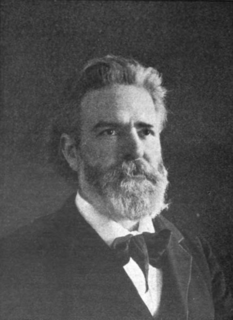A Quote by Mark Twain
Is it, perhaps, possible that there are two kinds of Civilization-one for home consumption and one for the heathen market?
Quote Topics
Related Quotes
I don't think we're crumbling as a civilization, but this is not our finest hour, and it's good to be mindful that we're all susceptible to fall and to look at what are the earmarks of a civilization on the wane. What are they - destruction of the environment? Conspicuous consumption? Heard of those?
I shall argue that it is the capital stock from which we derive satisfaction, not from the additions to it (production) or the subtractions from it (consumption): that consumption, far from being a desideratum, is a deplorable property of the capital stock which necessitates the equally deplorable activity of production: and that the objective of economic policy should not be to maximize consumption or production, but rather to minimize it, i.e. to enable us to maintain our capital stock with as little consumption or production as possible.
Developed and benefited from the unsustainable patterns of production and consumption which have produced our present dilemma. It is clear that current lifestyles and consumption patterns of the affluent middle class-involving high meat intake, consumption of large amounts of frozen and convenience foods, use of fossil fuels, appliances, home and work-place air-conditioning, and suburban housing-are not sustainable. A shift is necessary toward lifestyles less geared to environmentally damaging consumption patterns.
We passed law that encouraged consumption through different purchasing habits like, you know, hybrid vehicles. You buy hybrid, you get a tax credit. We've encouraged the spread of ethanol as an alternative to crude oil. We have asked for Congress to pass regulatory relief so we can build more refineries to increase the supply of gasoline, hopefully taking the pressure off of price. And so the strategy is to recognize that dependency upon crude oil, in a global market, affects us economically here at home. And, therefore, we need to diversify away as quickly as possible.
consumption can be very harmful to the world. I'm not a big proponent of the idea that consumption makes you morally bad, but there are consequences to our acts, and those consequences are environmental degradation and the huge social inequalities that make our standard of living in the United States possible.






































